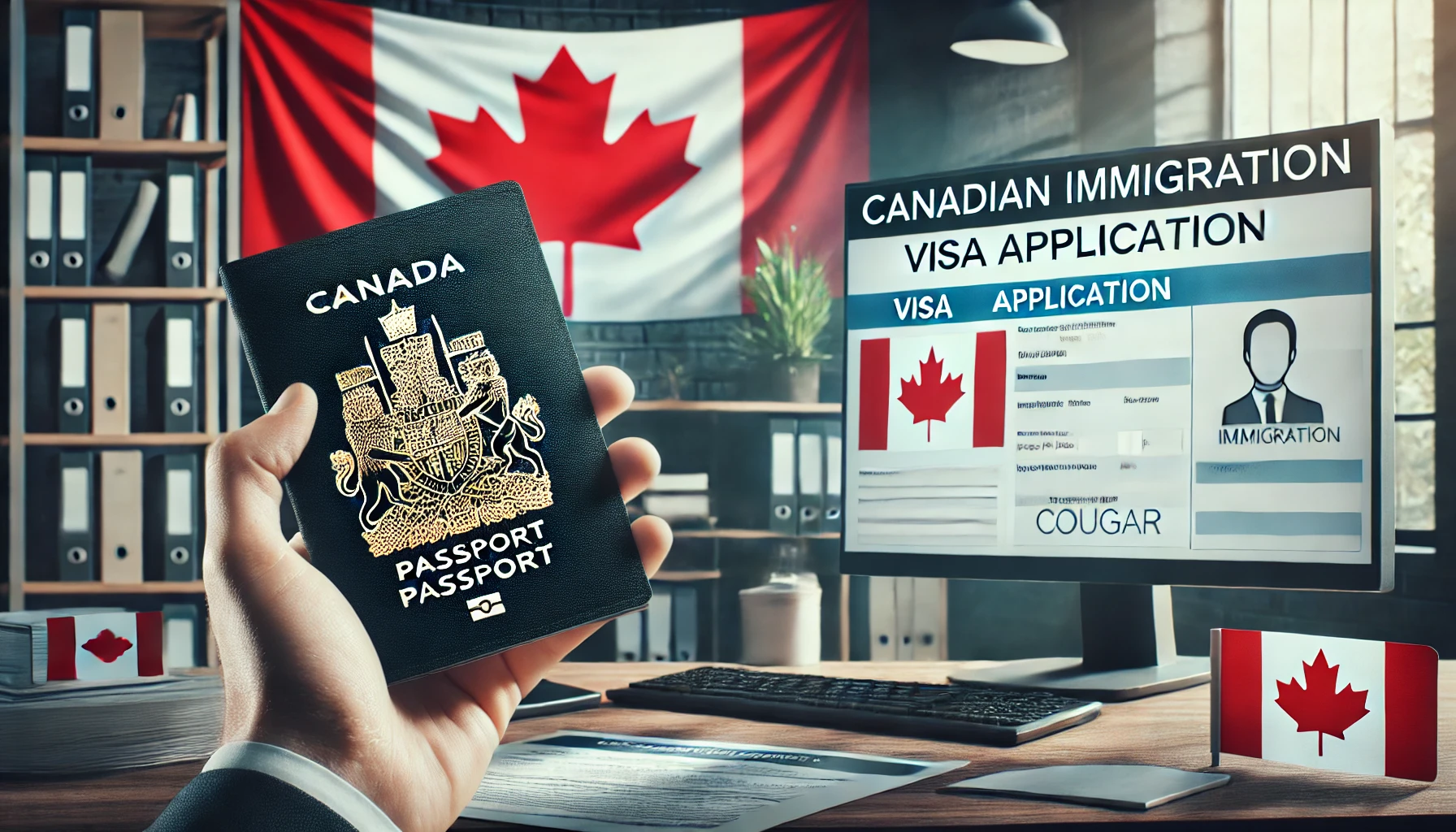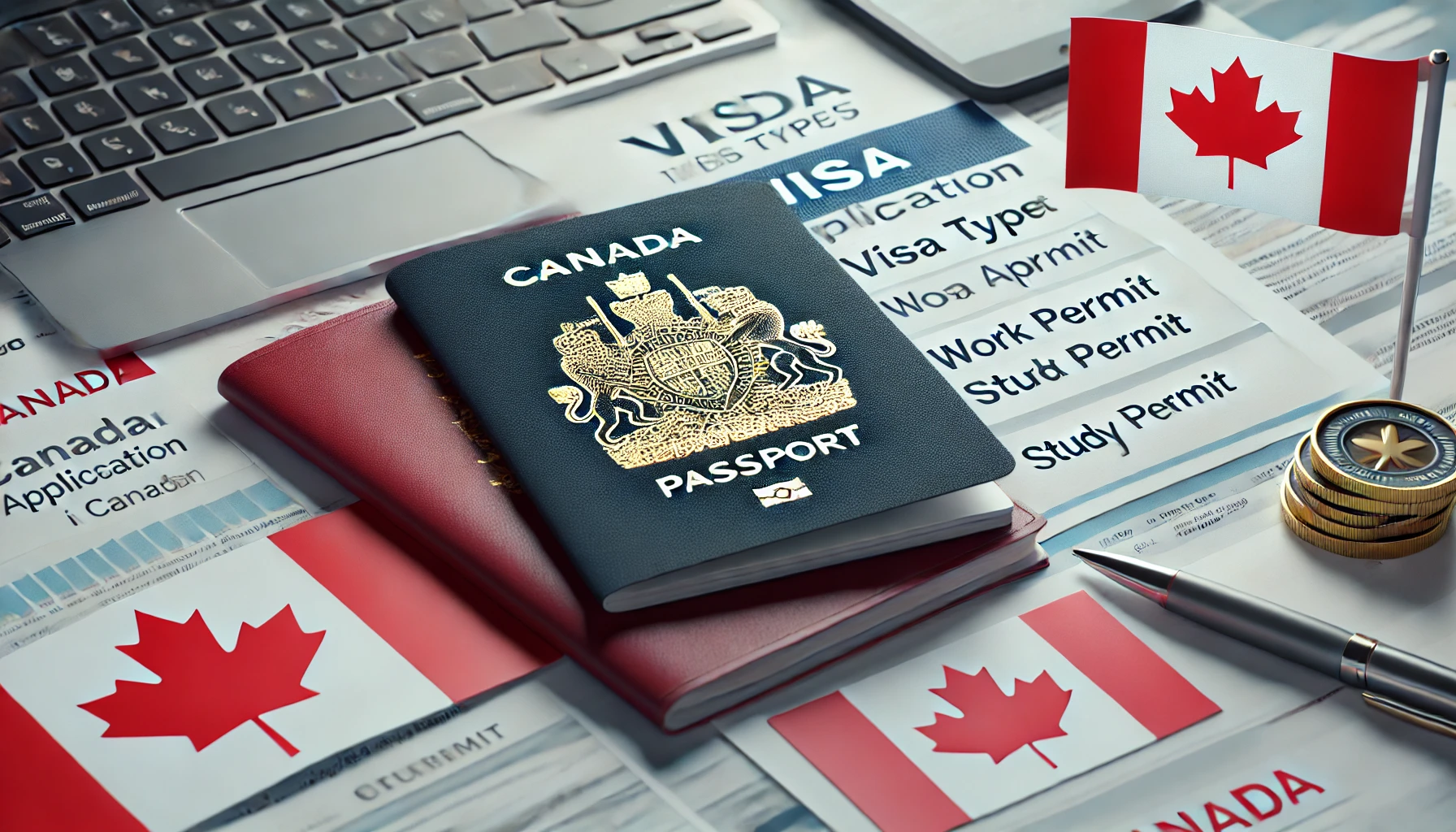Canada, often hailed as a land of opportunity, offers a variety of visas to cater to the diverse needs of individuals looking to visit, work, or settle in the country. Whether you’re planning a short visit or a long-term stay, understanding the different visa types in Canada is crucial for a smooth and successful application process. In this detailed guide, we’ll explore the various visa types Canada offering valuable information on their purposes, eligibility requirements, and application processes.
What is a Visa?
Before exploring the different visa types Canada offers, it’s important to grasp the concept of a visa. Essentially, a visa is an official authorization that permits you to enter, reside, or work in a foreign country for a designated period. In the context of Canadian immigration, a visa acts as your ticket to access the many opportunities that Canada has to offer.
Types of Visas in Canada

1. Temporary Resident Visas (TRVs)
If you’re planning a short visit to Canada, perhaps for a vacation or to visit family, you’ll need a Temporary Resident Visa (TRV). The visit visa Canada is designed for tourists and short-term visitors. It’s important to note the difference between a Canada visiting visa and a Canada visa visitor—the former is a general term, while the latter specifically refers to the visa given to tourists.
- V1 Visa Canada: This visa is issued to tourists and business visitors, allowing them to stay in Canada for a specified duration.
2. Work Permits
Canada is a hub for job seekers worldwide, thanks to its robust economy and diverse job market. If you’re planning to work in Canada, you’ll need a work permit, which is different from a visit visa Canada. There are several types of work visa Canada offers, each tailored to different employment needs.
- Open Work Permit: This permit allows you to work for any employer in Canada without needing a specific job offer at the time of application. It offers flexibility for those seeking employment upon arrival.
- Employer-Specific Work Permit: Tied to a particular employer, this permit requires a valid job offer before application. The work permit document number is essential for tracking and validating your work permit.
3. Study Permits
Canada boasts some of the world’s most prestigious educational institutions, making it a premier choice for international students.Unlike other visa types Canada offers, a study permit is specifically for those enrolled in academic programs.
- Study Permit: This Permit is important for any educational course/program that exceeds 6 months in duration. Applicants must provide proof of acceptance from a recognized Canadian institution and meet specific financial criteria.
- Work While Studying: Many students can work part-time during their studies, often through an off-campus work permit. This option provides valuable work experience alongside education.
4. Permanent Resident Visas
For those looking to make Canada their permanent home, a Permanent Resident (PR) visa is the goal. Permanent residency give you freedom to live and work in Canada as long as you choose. The process of obtaining a PR visa falls under a different Canada visa category than temporary visas, such as the Canada tourist visa.
- Express Entry: A points-based system that selects skilled workers for permanent residency. It includes programs like the Federal Skilled Worker Program, the Federal Skilled Trades Program, and the Canadian Experience Class.
- Provincial Nominee Programs (PNPs): Each province in Canada has its own PNP, which allows them to nominate individuals who meet specific criteria for permanent residency. This option is ideal for those who wish to settle in a particular province.
5. Visitor Visas
Visitor visas are essential for those planning a short-term stay in Canada, whether for tourism, visiting family, or attending business meetings.
- Canada Tourist Visa: The Canada tourist visa is for those wishing to explore Canada’s diverse landscapes and vibrant cities. This visa typically allows visitors to stay for up to six months.
- Canada Visiting Visa: The Canada visiting visa is suitable for individuals who have family or friends in Canada. This visa also permits a stay of up to six months and is ideal for those visiting for personal reasons.
6. Business and Investor Visas
Canada’s thriving economy welcomes entrepreneurs and investors from around the world. If you’re looking to start or invest in a business in Canada, these visa types are tailored to your needs:
- Start-Up Visa: For innovative entrepreneurs seeking permanent residency.
- Investor Visa: For significant financial investors in the Canadian economy.
- Self-Employed Visa: For cultural or athletic professionals aiming for self-employment.
7. Family Sponsorship Visas
Canada values family unity and offers various visas to help reunite families. These visa types allow Canadian citizens and permanent residents to bring their loved ones to Canada:
- Spouse/Partner Sponsorship: Bring your spouse or partner to live permanently in Canada.
- Parent/Grandparent Sponsorship: Reunite with parents and grandparents as permanent residents.
- Dependent Child Sponsorship: Sponsor your dependent children to live in Canada.
8. Refugee and Humanitarian Visas
Canada has a longstanding tradition of offering refuge to those in need, and its refugee and humanitarian visas reflect this commitment:
- Refugee Protection Visa: For those fleeing persecution, offering a new beginning in Canada.
- Humanitarian & Compassionate Visa: For individuals with compelling reasons to settle in Canada.
- Private Sponsorship of Refugees: Allows private groups to sponsor and support refugees.
How to Apply for a Canadian Visa ?

Step 1. Choose the Right Visa Type
Identify the visa type that aligns with your travel purpose, whether it’s for tourism, work, study, or permanent residency. Understanding your specific needs will guide the entire application process.
Step 2. Check Eligibility Requirements
Review the eligibility criteria for your chosen visa, including valid passport, financial proof, and health requirements. Ensuring you meet all conditions upfront prevents delays in your application.
Step 3. Prepare Necessary Documents
Gather all required documents, such as your passport, photographs, financial statements, and invitation letters. Having everything organized ensures a smoother application process and avoids missing critical paperwork.
Step 4. Submit Your Application Online
Complete the visa application form on the official IRCC website, pay the processing fee, and submit your documents. Carefully review all details to prevent common mistakes that could slow down the processing time.
Step 5. Wait for Processing and Visa Issuance
After submission, patiently wait for your visa to be processed. Keep track of your application status online, and once approved, make sure to review all the details on your visa.
How Cougar Immigration Can Help You?
At Cougar Immigration, immigration consulting firm in Windsor, Ontario we’re not just about paperwork and processes; we’re about people and possibilities. At Cougar Immigration, we’re more than just your immigration consultants—we’re your partners in building a brighter future. Here’s how we make your journey to Canada smooth, simple, and successful:
- Expert Guidance: We simplify complex immigration processes, ensuring you choose the right visa path for a smooth transition to Canada.
- Personalized Support: Tailored assistance from start to finish, making your Canadian immigration journey stress-free and successful.
- Hassle-Free Process: We handle all the paperwork, letting you focus on your exciting future in Canada without the headaches.
- Proven Success: Join countless clients who’ve achieved their Canadian dreams with our expert help and dedicated service.
- Comprehensive Services: From work visas to family sponsorship, we offer a full suite of services to meet all your immigration needs.


